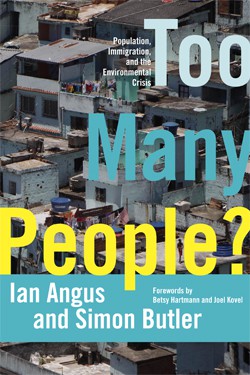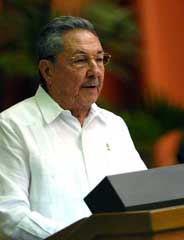Green illusions and the carbon tax

By Tim Anderson
April 30, 2011 -- The proposal for a carbon tax raises the issues of tax equity and political strategy. Yet despite their inter-relatedness, we need to disentangle these issues to focus on the original question. As a mean of addressing climate change, the carbon tax proposal comes in the context of difficult global negotiations, where almost any proposal has been seen as a breakthrough, and where (after the last financial derivatives bubble) there is justified suspicion of emissions trading schemes.
In Australia the political context includes a narrow, two-party debate which has reverted to tax incidence, with both major parties basically captured by the major investor groups and Labor having recently been humiliated over a failed proposal for a new mining tax. Into this mix we have the Greens, presenting as an alternative, yet signing an accord with the Labor government over its carbon tax.
I would like to briefly touch on the tax equity issue, before moving to the carbon tax and then to the question of political strategies.
Tax equity
Breaking the real taboo in the population debate

By Ian Angus
April 27, 2011 -- Climate and Capitalism -- Is there a taboo against attributing environmental problems to population growth? Are populationist views being suppressed?
Sir David Attenborough thinks so. On March 10, the noted naturalist and broadcaster told a meeting in London that there is a “strange silence … some bizarre taboo” about the population issue. This “absurd taboo” has “a powerful grip on the minds of so many worthy and intelligent people”. Attenborough urged his listeners to “break the taboo”, by raising the population issue whenever and wherever they could.
Who was he talking to? Who were the brave people who dared to listen to a talk on this forbidden topic? Was it some secretive group, hanging on despite all odds, somehow keeping alive the truths that are suppressed by the powers that be?
Well, no.
`Lenin and workers' control', by Didier Limon (1967)

May Day in St Petersburg, 1917.
By Didier Limon, translated, edited and introduced by Keith Rosenthal
December 22, 2010 -- This phenomenal, historical and analytical study by Didier Limon -- which first appeared in Autogestion: études, débats, documents, cahier no. 4, pp. 65-111 (Paris, December 1967) -- has, until now, not been translated into English. This is a shame on many levels for it stands nearly peerless in its meticulous treatment of the specific subject it takes up. That is, the debates and discussions surrounding the implementation of workers’ control of production within the first months after the October revolution of 1917 in Russia.
Global microfinance industry totters as Grameen Bank founder’s career ends in disgrace

Grameen Bank's Muhammad Yunus (right) with Bangladeshi women. The promised empowerment and poverty reduction failed to eventuate.
By Patrick Bond
April 27, 2011 -- Links International Journal of Socialist Renewal -- Bangladesh’s once-legendary banking environment is now fatally polluted. The rot is spreading so fast and far that the entire global microfinance industry is threatened. Controversy ranges far beyond poisonous local politics, the factor most often cited by those despondent about Grameen Bank’s worsening crisis.
`No space for shock therapies': Central report to the sixth congress of the Communist Party of Cuba

Cuba's President Raul Castro presents the central report to the sixth congress of the Communist Party.
By Raul Castro
April 16, 2011 -- Comrades all, the opening of the 6th Congress of the Communist Party of Cuba this afternoon marks a date of extraordinary significance in our history, the 50th anniversary of the proclamation of the socialist nature of our Revolution by its Commander in Chief, Fidel Castro Ruz, on April 16, 1961, as we paid our last respects to those killed the day before during the bombings of the air bases.
This action, which was the prelude to the Playa Girón (Bay of Pigs) mercenary invasion organized and funded by the United States government, was part of its plans to destroy the Revolution and restore its domination over Cuba in league with the Organization of American States (OAS).
Cuba: Sixth congress of the Communist Party concludes -- three assessments

Cuba's President Raul Castro addresses the sixth congress of the Communist Party.
[For more analysis and discussion on the economic changes in Cuba, click HERE.]
By Jesús Arboleya Cervera
April 20, 2011 -- Progreso Weekly -- With the enthusiastic support of Fidel Castro, the sixth congress of the Communist Party of Cuba has just ended. Not by happenstance, the date chosen for the meeting coincided with the commemoration of the 50th anniversary of the victory of Playa Girón [Bay of Pigs], an event that had enormous repercussions for the Cuban revolutionary process, not only for its military significance but also because it defined the revolution's socialist character and instilled in the masses an awareness of their own strength that translates into the political capital necessary for the preservation of the revolution.
Climate finance leadership risks global bankruptcy

By Patrick Bond
April 24, 2011 -- Links International Journal of Socialist Renewal -- South Africa’s most vocal neoliberal politician, Trevor Manuel (pictured above), has just been named as co-chair of the Green Climate Fund. On April 28-29, 2011, in Mexico City, Manuel and other elites met to design the world’s biggest-ever replenishing pool of aid money: a promised US$100 billion of annual grants by 2020, more than the International Monetary Fund (IMF), World Bank and allied regional banks put together.
The Climate Justice lobby is furious because, as the network of 90 progressive organisations wrote to the United Nations, “The integrity and potential of a truly just and effective climate fund has already been compromised by the 2010 Cancún decisions to involve the World Bank as interim trustee.” A Friends of the Earth International study earlier this month attacked the World Bank for increased coal financing, especially $3.75 billion loaned to South Africa’s Eskom a year ago.
Montreal conference rallies support for rights of nature

By John Riddell
April 23, 2011 – Links International Journal of Socialist Renewal -- Bolivia marked Earth Day (April 22) this year by formulating the Law of Mother Earth, which—when adopted—will establish 11 new rights for nature, including the right not to be polluted and the right to continue vital cycles free from human interference.
On April 20, the United Nations General Assembly debated a proposal introduced by Bolivia, with support of other South American countries, to adopt a Universal Declaration of the Rights of Nature. The proposed global treaty says that “Mother Earth has the right to exist, persist, and to continue the vital cycles … that sustain all human beings”.
Meanwhile, Canada’s political and media establishment have organised an election campaign in which the world’s ecological crisis is barely mentioned.
George Monbiot vs Helen Caldicott: Who is right about the Chernobyl death toll?

By Jim Green
April 17, 2011 -- Green Left Weekly -- With the 25th anniversary of the Chernobyl nuclear disaster falling on April 26, a debate is brewing over the estimated death toll. The debate has erupted with a heated exchange between prominent British columnist George Monbiot and anti-nuclear campaigner Dr Helen Caldicott. Monbiot claims the “official death toll” from Chernobyl is 43. Caldicott puts the death toll at 985,000. Someone's wrong. Perhaps they both are.
The debate over the Chernobyl death toll turns on the broader debate over the health effects of low-level ionising radiation and in particular the risk of cancer. The weight of scientific opinion holds that there is no threshold below which ionising radiation poses no risk and that the risk is proportional to the dose — the “linear no-threshold” (LNT) model.
Japan's nuclear history in perspective: atoms for war and peace

April 13, 2011 -- Bulletin of the Atomic Scientists -- It is tragic that Japan, the most fiercely anti-nuclear country on the planet, with its Peace Constitution, three non-nuclear principles, and commitment to nuclear disarmament, is being hit with the most dangerous and prolonged nuclear crisis in the past quarter-century -- one whose damage might still exceed that of Chernobyl 25 years ago. But Japan's anti-nuclearism has always rested upon a Faustian bargain, marked by dependence on the United States, which has been the most unabashedly pro-nuclear country on the planet for the past 66 years. It is in the strange relationship between these two oddly matched allies that the roots and meaning of the Fukushima crisis lay buried.